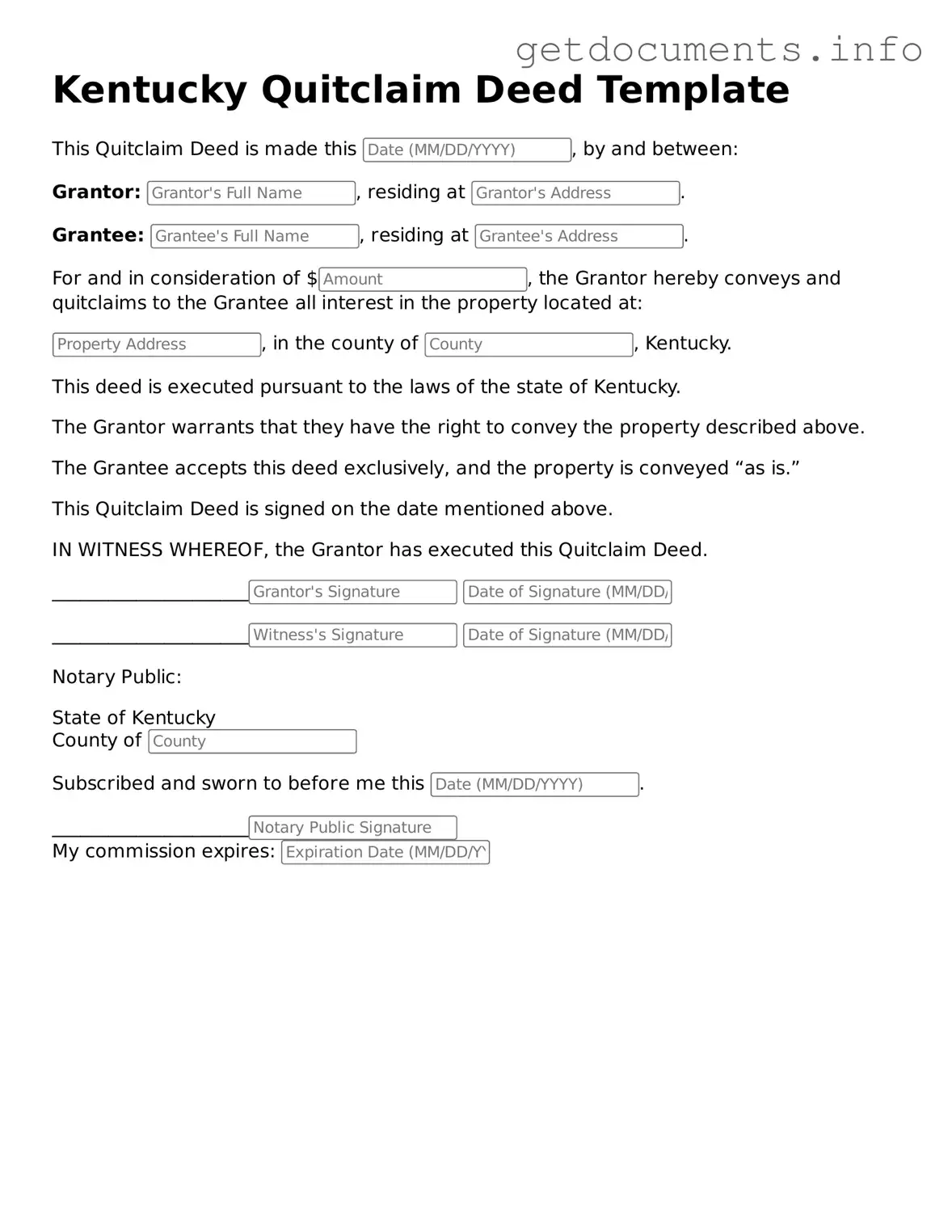Free Quitclaim Deed Template for Kentucky
A Kentucky Quitclaim Deed is a legal document that allows a property owner to transfer their interest in a property to another party without making any guarantees about the title. This form is commonly used in situations where the parties know each other, such as family transfers or divorce settlements. To begin the process of filling out the form, click the button below.
Access Quitclaim Deed Editor

Free Quitclaim Deed Template for Kentucky
Access Quitclaim Deed Editor
Got places to be? Complete the form fast
Fill out Quitclaim Deed online and avoid printing or scanning.
Access Quitclaim Deed Editor
or
⇩ PDF File
